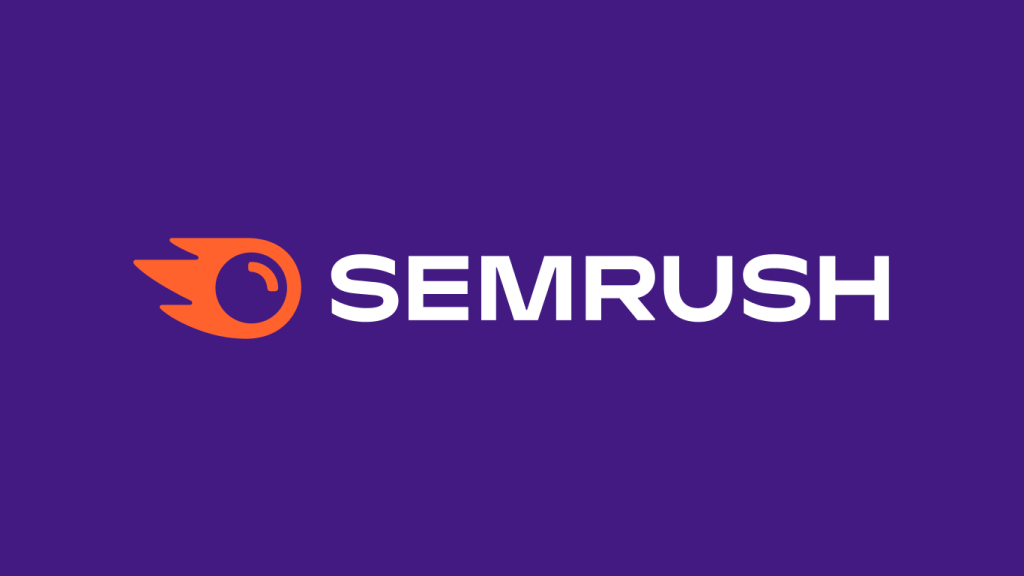If you’re a digital marketer, business owner, or just someone looking to improve your website’s organic search engine rankings, then this post is for you. In this guide, we’ll introduce you to some of the most effective and widely-used tools for SEO, and explain how they can help you optimize your website and drive more organic traffic and leads.
Whether you’re a beginner or an experienced SEO pro, we’ve got you covered with recommendations for tools that can help you with keyword research, on-page optimization, technical SEO, link building, and much more. So without further ado, let’s dive in and explore the best tools for SEO in [year].
Keyword Research Tools
One of the key elements of successful SEO is keyword research, and there are a number of tools that can help you identify the right keywords to target. Keyword research tools are useful for a number of reasons, including:
- Identifying relevant keywords: Keyword research tools can help you identify keyword ideas that are relevant to your business, products, or services. Especially if you’re optimizing your website and creating content that targets a specific audience.
- Understanding organic search volume: Keyword research tools can provide data on how often a particular keyword is searched for, which can help you understand how popular a keyword is and how much demand there is for it.
- Determining keyword difficulty: Keyword research tools also provide data on how hard is ranking for a particular keyword, which can help you understand the level of competition for that keyword.
- Identifying long-tail keywords: Keyword research tools can give you tons of ideas on identifying long-tail keywords, which are more specific and less competitive than shorter, more general head-terms keywords. These keywords usually have higher conversion rates due to being more targeted and specific.
Keyword research tools can provide valuable data and insights that can help you optimize your website or create content that targets the right audience and is more likely to rank in search engine results pages.
Google Keyword Planner

Google Keyword Planner is a free SEO & PPC tool provided by Google that allows you to research and plan your keyword strategy. It provides data on search volume, competition, and cost-per-click for specific keywords.
To use the Google Keyword Planner, you’ll need to have a Google Ads account and it will give you limited data if you don’t spend any money on Google Ads within this account. Once you’ve logged in, you can enter a seed keyword or a list of keywords, and the tool will generate data on the search volume, competition, and cost-per-click for those keywords. You can also use the tool to see data on related keywords and get ideas for new keywords to target.
In addition to providing data on search volume and competition, the Google Keyword Planner also allows you to see how your keywords are performing in terms of clicks and impressions. This can be useful for understanding the effectiveness of your keyword strategy and making adjustments as needed.
Google Keyword Planner is a useful tool for anyone looking to optimize their website or create content that targets a specific audience. It provides valuable data and insights that can help you understand the demand for particular keywords and identify opportunities for improvement.
Ahrefs

Ahrefs is a comprehensive SEO tool offering various features. One of the key features of Ahrefs is its keyword research tool, which provides data on search volume, keyword difficulty, and the number of clicks a keyword receives.
In addition to keyword research, Ahrefs also offers a range of other analysis tools, including:
- Backlink analysis: This allows you to see the links pointing to your website and understand the quality and relevance of those links.
- Site audit: This analyzes your website and provides a report on any issues that may be affecting your organic search engine rankings.
- Rank tracking: This allows you to track the performance of your website and specific keywords in SERP.
- Content explorer: This helps you find popular and high-quality content in your industry, which can be useful for generating ideas and improving your own content strategy.
Ahrefs is a powerful all-in-one and comprehensive SEO tool that offers a range of features designed to help you improve your organic search engine rankings and drive organic traffic to your website. Ahrefs also provides a variety of SEO Audit features, including identifying broken links, improving the structure of a website’s internal linking, and analyzing the performance of specific pages.
SEMrush
SEMrush is another comprehensive SEO tool offering various features, including keyword research, backlink analysis, site audit, rank tracking, and competitor analysis.
In addition to the keyword research tool feature, SEMrush also offers PPC research, which provides data and insights on PPC campaigns, including keyword ideas, ad copy analysis, and performance tracking. This can be useful for businesses and marketers looking to optimize their PPC campaigns and improve their return on investment.
It also offers a pretty good rank-tracking feature, that allows you to track the performance of your website and specific keywords in the SERP as well as the competitor analysis, which helps you understand the SEO strategies of your competitors and identify opportunities to improve your own website and tailor your strategy.
SEMrush is also a powerful and comprehensive tool not only for SEO but also for Performance Marketing.
SEMRush is an awesome all-in-one digital marketing tool that provides a range of features for SEO, PPC, content marketing, and SEO Audit.
KWFinder

KWFinder is a keyword research tool that provides data on search volume, keyword difficulty, and the number of clicks a keyword receives. One of the main features of KWFinder is its keyword difficulty score, which indicates the level of competition for a particular keyword.
KWFinder also offers a range of other features, including backlink analysis, rank tracking, and SERP analysis, which analyzes the organic search engine results pages for a particular keyword and provides data on the top-ranking pages, including their domain authority, page authority, and the number of backlinks they have.
Ubersuggest

Ubersuggest is a keyword research tool that provides data on search volume, keyword difficulty, and the number of clicks a keyword receives.
To use Ubersuggest, you’ll need to enter a seed keyword or a list of keywords that you want to research. The tool will then generate a list of related keywords and provide data on their search volume, keyword difficulty, and the number of clicks they receive.
Ubersuggest also offers a range of other features, including backlink analysis, SERP analysis, and rank tracking.
This tool is especially useful for those on a budget because it’s a free SEO tool. It’s easy to use and provides valuable data and insights that can help you identify relevant keywords and improve your search engine rankings.
Keywordtool.io

Keywordtool.io is a keyword research tool that generates a list of long-tail keywords based on a seed keyword. It’s particularly useful for generating ideas for long-tail keywords that may be less competitive and more targeted.
One of the key features of Keywordtool.io is its ability to generate a large number of long-tail keywords based on a single seed keyword.
Moz Keyword Explorer
In addition to the keyword research feature, Moz Keyword Explorer provides features like keyword difficulty, related keywords, SERP analysis, rank tracking, and backlink analysis, which allows you to see the links pointing to your website and understand the quality and relevance of those links.
SERPstat

SERPstat provides a range of features for keyword research, rank tracking, backlink analysis, website audit, and more. With SERPstat, you can find new keywords to target, track the ranking of your website or specific pages for specific keywords, analyze the links pointing to your website, and identify any issues with your website that might be impacting its search engine performance.
SERPstat also provides data and insights on the search engine results pages (SERPs) for specific keywords, including information on the top-ranking pages, their titles and descriptions, and other elements of the SERP.
Answer the Public

AnswerThePublic is a tool that helps you to generate content ideas and find new keywords for your website or marketing campaigns. It works by analyzing search data from search engines like Google and Bing to find out what people are searching for online. The tool then presents this data in an interactive visual format, showing users the most popular related questions, prepositions, and comparisons related to a particular topic or keyword.
This tool allows you to enter a seed keyword and generates a list of related questions and phrases that people are searching for. This can be helpful for identifying long-tail keywords and generating new content ideas for content that addresses common questions and concerns, finding new keywords to target, and understanding what types of questions and topics are of most interest to people in a particular market or industry.
Answer the Public also provides data on the organic search volume for each keyword, which is useful for understanding the demand for a particular topic.
AlsoAsked

This is another keyword research tool that can be very useful for identifying long-tail keywords and generating ideas for content. It works by analyzing search queries related to a seed keyword and generating a list of frequently asked questions and related keywords. It helps to understand the types of questions and concerns people have about a particular topic, and for creating content that addresses those questions.
AlsoAsked provides data on the search volume for each keyword, which can be useful for understanding the demand for a particular topic. Additionally, it offers a feature that allows you to compare the search volume for multiple keywords to see which ones are more popular.
Google Trends

Google Trends is a free tool offered by Google that allows users to see how frequently a particular search term or phrase has been searched for over time. It can be used to track the popularity of a particular term, compare the popularity of multiple terms, and see how interest in a particular topic has changed over time. Google Trends provides data on search volume and related topics, as well as information on regional and global interest in a particular term.
You can use Google Trends to get a better understanding of your target audience and identify trends in consumer behavior and interests. It can be particularly useful for identifying trends in specific industries or markets. Google Trends can be accessed for free through its website or through the Google Search app on mobile devices.
All-in-one SEO Audit and Website Analysis
Whenever you have a website and want to improve its visibility by applying SEO techniques, you have to run SEO Audits. It involves checking a website’s technical and on-page SEO factors to determine how well it’s optimized for search engines like Google, Bing, Yandex, etc. The goal of an SEO audit is to identify any issues that may be hindering a website’s ability to rank well in search results and to make recommendations for improvements.
Some common steps that are typically involved in an SEO audit are things like crawling the website, checking the website’s on-page SEO, analyzing the content, reviewing the backlink profile, evaluating performance, and making sure that the SEO best practices are being followed.
You can use a tool like Screaming Frog or Botify to crawl the website and identify any technical issues, such as broken links or missing meta tags.
In order to check the website’s on-page SEO you usually don’t need any tool, although some tools can definitely make this easier for you, essentially what you need is to look at the title tags, meta descriptions, and headings to ensure they are optimized for target keywords and most importantly, the search intent behind that target keyword, and are relevant to the content on the page.
When analyzing the website’s content you need to look at the quality and relevance of the content to make sure it’s providing actual value to the users.
To analyze the backlink profile, you have to check the quality and quantity of the backlinks your website is getting to ensure they’re coming from reputable sources and are helping to improve the website’s search rankings instead of harming it by coming from spammy sources. Spammy backlinks are usually ignored by search engines due to negative SEO prevention, but sometimes it can harm your results.
If you have a website, an app, or anything else live on the internet, you must constantly evaluate its performance. You can use free tools like Google Analytics to analyze the traffic and conversion rates to see how well it’s performing in the search results.
Let’s dive into the tools that can be used in order to have a proper SEO audit of your website:
Google Analytics

Google Analytics is a free web analytics service that helps you track and analyze your website traffic and performance. It provides a range of reports and tools for understanding how visitors interact with a website, including data on the number of visitors, their location, the devices they use, and the pages they visit. Google Analytics also allows you to set up goals and track conversions, as well as to segment your audience and track the performance of specific campaigns or pages.
Google Search Console

Google Search Console is a free SEO tool that helps you monitor and maintain your website presence in Google search results. It provides data and tools for understanding how Google crawls and indexes a website, as well as alerts for any issues that might impact your website’s visibility in search results. Google Search Console also allows you to submit sitemaps and individual URLs for crawling, and to see the search queries that are driving organic traffic to your website.
Together, Google Analytics and Google Search Console provide a comprehensive view of a website’s performance and are the ultimate basic to any website owner.
Raven Tools

One of the best features that Raven Tools has is its Site Auditor, which allows you to analyze your website and identify technical issues that could be impacting its performance in organic search results. The Site Auditor performs a comprehensive analysis, including checks for broken links, duplicate content, and slow loading times, as well as checks for issues with the website’s structure, such as improperly formatted URLs or missing title tags.
Once it’s done, it provides you with a report detailing any issues it has identified, along with recommendations for how to fix those issues.
Screaming Frog

Screaming Frog is a website crawler and SEO audit tool that helps you analyze and improve the performance of your website. It works by crawling a website and collecting data on its structure, content, and technical characteristics, and then presenting that data in an easy-to-use interface.
Some of the key features of Screaming Frog include crawl analysis, technical issues that could be impacting your performance, on-page, and backlink analysis.
Botify

Botify offers similar features to Screaming Frog, including the crawl, technical, on-page, and backlink analysis. In addition, Botify also offers a range of features for managing PPC campaigns.
This site auditing tool is simple and easy to use. It gives you information on how quickly your site loads, any HTML errors it has, and how deeply users are clicking on your site.
OnCrawl

OnCrawl is a powerful SEO platform that is specifically designed for enterprise-level SEO audits and daily monitoring. OnCrawl is known for its strong technical focus and provides search marketers with easy access to actionable data through its dashboards and reports. This makes it an effective solution for improving the performance of websites in search results.
Lumar (formerly Deepcrawl)

Lumar (formerly called DeepCrawl) is a powerful website intelligence platform that serves as a “command center” for managing and optimizing a website’s performance. It helps users scale their digital operations by bringing together teams, data, and insights in a single platform. Lumar’s website intelligence platform is powered by a fast and reliable web crawler that identifies technical and structural issues on a website and helps users prioritize and fix them. By using Lumar, users can take control of their website’s health and unlock its full commercial potential.
SEObility

SEObility is a comprehensive all-in-one SEO tool that helps users improve their website’s rankings. It offers a range of features, including an on-page SEO audit, backlink analysis, link-building tools, and ranking tracking. Seobility also provides additional tools for content creation and optimization, such as a TF-IDF tool. The software is designed with a focus on quality and usability and is suitable for both SEO professionals and beginners.




